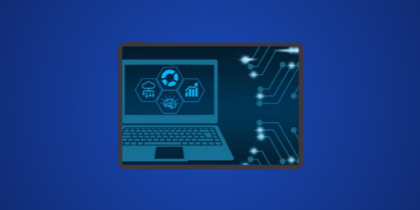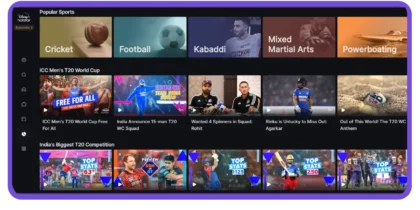Table of Contents

ISPs have been caught selling personal data without user consent. This has led to a lot of privacy concerns and many people are wondering how they can prevent their ISP from doing this.
There are a few things you can do to prevent your ISP from selling your data. The first thing you can do is use a VPN. A VPN encrypts your traffic and routes it through a server in another location, making it difficult for your ISP to track what you’re doing online.
Another thing you can do is use a secure browser extension like HTTPS everywhere. This extension forces your browser to use HTTPS connections whenever possible, which makes it harder for ISPs to snoop on your web traffic.
Finally, you can contact your ISP and let them know that you don’t want them to sell your data. Many ISPs have been forced to change their policies after customers started contacting them about this issue.
By taking these steps, you can help protect your privacy online and make it harder for your ISP to sell your data.
Can ISPs see my browsing history?
Yes, your ISP (Internet Service Provider) can see your browsing history. They can track what websites you visit and how much time you spend on them. They can also see the devices you are using to access the internet and your IP address.
Your ISP can use this information to sell to advertisers or to slow down your internet connection if they think you are using too much data.
You can stop your ISP from tracking your browsing history by using a VPN (Virtual Private Network). A VPN encrypts your internet traffic so that your ISP cannot see what you are doing.
What do ISPs do with my data?
Internet Service Providers (ISPs) can do whatever they want with your data.
That might not seem fair, but it’s the way things are. ISPs are in charge of the pipelines that connect you to the internet, so they have a lot of control over what you can do online and how fast you can do it.
Some ISPs have been known to throttle speeds for certain types of traffic, or even block access to certain websites altogether. And because they have your personal information (like your name, address, and phone number), they can sell it to advertisers without your permission.

So what can you do about it? Not much, unfortunately. But there are a few things you can do to protect your privacy:
Use a VPN:
A Virtual Private Network (VPN) encrypts all of your traffic, so your ISP can’t see what you are doing or sell your information to advertisers.
Use TOR:
The TOR network is a free and open way to browse the internet anonymously. It’s not perfect, but it’s a good way to keep your traffic private.
Pay for a premium service:
Some ISPs offer “privacy protection” for an additional fee. This usually just means they won’t sell your information to advertisers, but it might also include other features like not sharing your browsing history with law enforcement.
At the end of the day, though, the best way to protect your privacy online is to be aware of what your ISP can do with your data and use caution when sharing personal information online.
What type of data can the ISP sell?
No matter what anyone tells you, your ISP knows everything about you and your online activity. They can see every website you visit, every file you download, every video you stream, and everything else you do online. And they can sell that information to the highest bidder without your consent or even letting you know.
ISPs can sell three types of data: aggregate data, de-identified data, and personal data.
- Aggregate data is anonymous information that is collected from many users and then sold in bulk. This type of data can be used to target ads and create marketing campaigns, but it cannot be used to identify or track a specific individual.
- De-identified data is similar to aggregate data, but it has been processed to remove any personally identifiable information. This type of data can still be used for marketing and advertising purposes, but it is less valuable than personal data because it cannot be used to target a specific person.
- Personal data is the most valuable type of data that an ISP can sell. It includes information like your name, address, phone number, email address, and online activity. This type of data can be used to target ads and marketing campaigns directly at you, and it can also be sold to third-party companies who may use it for their own purposes.
Can a VPN prevent ISPs from selling my data?
If you are concerned about your privacy, the best thing you can do is use a VPN. A VPN encrypts all of your traffic and hides your IP address from your ISP and other third parties. This means that your ISP will not be able to sell your personal data, and it will also make it much more difficult for them to track your online activity.
Why pick PureVPN?
Here are a few benefits of choosing PureVPN over free VPNs and other service providers:
- Hide your IP addresses from ISPs to enjoy anonymous searches, and protect online blueprints.
- Use the IKS (Internet kill switch) feature to stay hidden even if the internet connection drops.
- DNS and IP leak protection helps protect your real IP address from prying eyes, surveillance agencies, and ISPs.
- Prevent ISP throttling and enjoy unlimited bandwidth.
Frequently asked questions:
Does my ISP sell my data?
Your ISP may sell your data without you knowing it. In some cases, ISPs have been known to sell their customers’ data without their consent or knowledge. This practice is called “data harvesting” and it is done for a variety of reasons, including financial gain.
Data harvesting can be used to target ads at you, sell your information to third-party companies, or even by hackers who can use your personal data for identity theft.
If you are concerned about your ISP selling your data, you can take steps to protect yourself. One way is to use a VPN, which encrypts your traffic and makes it more difficult for ISPs to track and sell your data.
You can also contact your ISP and ask them if they sell their customers’ data. If they do, you may want to consider switching to a different ISP.
Does DuckDuckGo hide from ISP?
DuckDuckGo is a search engine that values privacy. This means that we do not collect or share your personal information, and we do not track your online activity. Your ISP (Internet Service Provider) may be able to see that you are using DuckDuckGo, but they will not be able to see what you are searching for.
DuckDuckGo provides extra privacy protection by routing your searches through our servers instead of directly to the websites you visit. This makes it more difficult for ISPs and other third parties to track your online activity.
Do ISPs care if you use a VPN?
Some ISPs might blacklist your IP address or start throttling your internet connection if you are caught using a VPN on your home network. The reason why ISPs throttle the internet or discourage customers from using a VPN is to prevent network congestion.
How do I protect myself from ISP?
The best way to protect your online activities from ISPs is to use a VPN that encrypts your incoming traffic and hides your activities. A VPN creates an encrypted tunnel that helps protect your real IP address and allows you to browse the internet anonymously.









